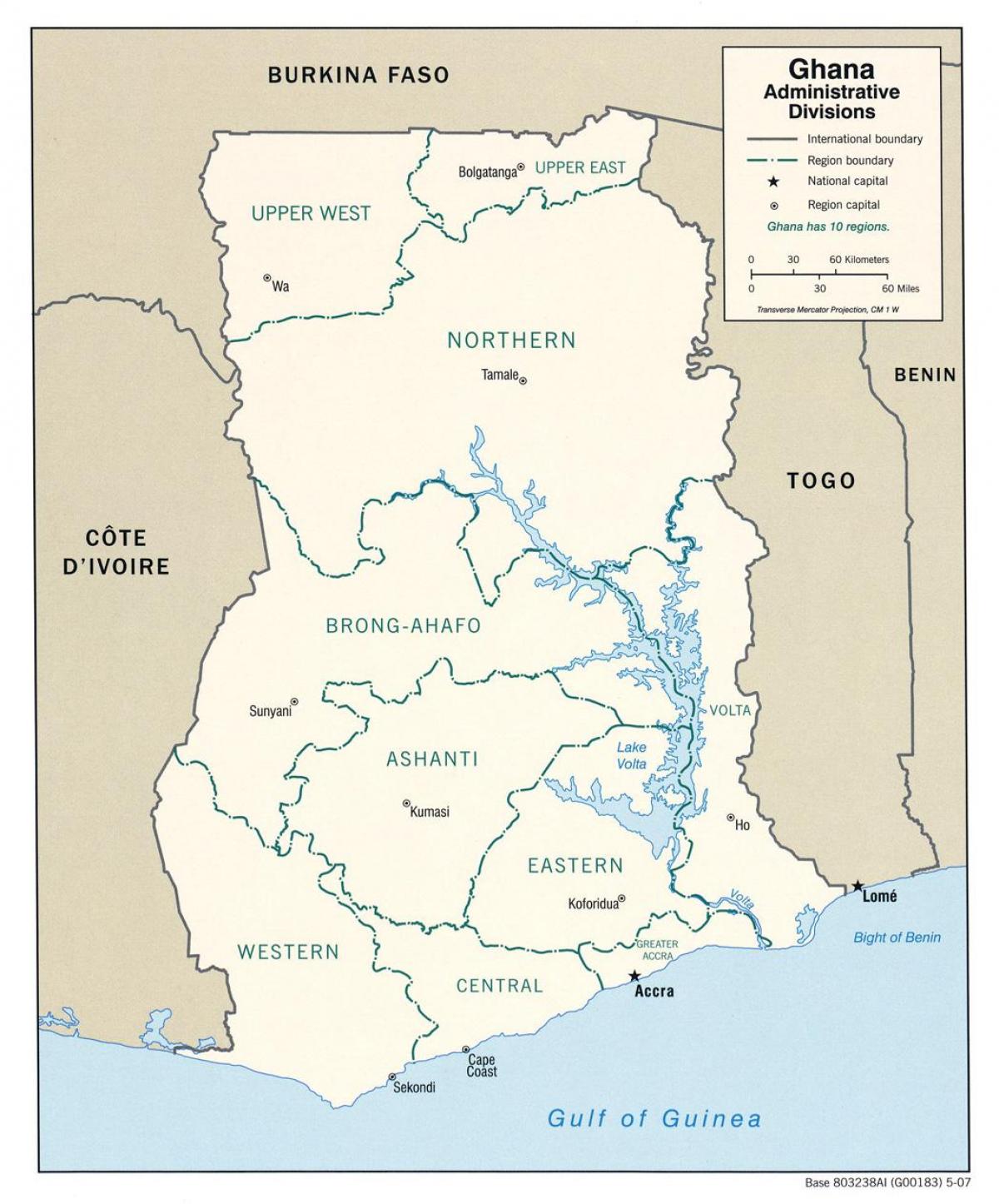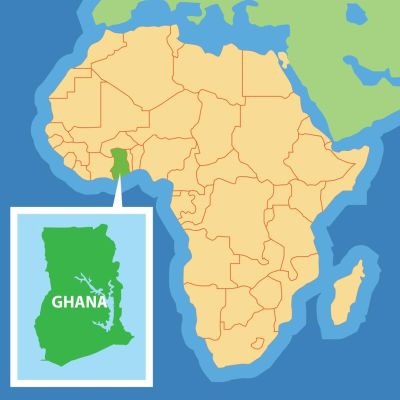#1: Mema wo akwabba!
‘Mema wo akwabba’ means I welcome you in Twi, this is a dialect of the widely spoken Akan language in Ghana, one of some ~2000 languages across Africa! I want to welcome you to my blog series looking into the connections between water and gender, and their aid towards the development through women’s empowerment within African countries by firstly speaking a little about myself, being of Ghanaian heritage and part of the African diaspora born in the UK!
My Grandfather and I
I remember my grandfather recalling stories from his fond childhood memories from Fetenta, the village he grew up in located in the Brong-Ahafo region of Southern Ghana, amongst the Ashanti tribe in the 1930s. He later moved to Accra, Ghana’s capital city, before relocating to London in the early 1950s.
Two maps showing Ghana's location in Africa. Please click any images you see throughout my blogs to view their sources.
Alas, I can’t help but wonder how my life could have transpired if I had grown up during the same period as my Grandfather but as a young woman and not a man in a rural village of sub-Saharan Africa.
Nonetheless, this is not to fall into the box of Wainaina’s (2019) How to Write About Africa through critically emphasising elements of exoticisation (Said 1978; Jazeel 2012) and performative allyship through satire (thankfully...). Let’s take a moment to rethink any subconscious thoughts we just circumvent through reading the passage above:
- How did you immediately picture the village - what were homes made of, what were the women doing?
- What was the first thing that came to mind when thinking of a tribe, what were they wearing?
- Is there any water and how exactly did you perceive the differences between young men and women growing up in a village in the 1930s...?
Whilst breaking down some of these unconscious biases throughout my blog series, I will be stressing how gendered access to water and inadequate water security contribute towards greater gender inequality, in turn, affecting women’s empowerment and, thus, development.
Last week I asked my grandfather more about his childhood and, I must admit, I did expect certain answers from him including the village's young women being those to walk for miles to find water and spending most days of the week doing this... This was not the case in his village. He said “nobody was special, all the young children of families in the village had to fetch water from the river. It would take the whole day to collect the water, we would be walking for hours, very far. We would store [the water] when we got back so you don’t [have to] go there for a while.”
Left: a map showing Ghana's river systems. Right: a map exhibiting Ghana's biomes and tribes.
Fetenta is situated on the border of the tropical semi-deciduous forest and the transitional zone terrains shown on the map above. The rivers my Grandfather walked to would have fed into the then Lake River Basin, now Lake Volta, globally the largest artificial reservoir since the completion of the hydroelectric Akosombo Dam in 1965 (Gyau-Boakye 2001).
Further, Ashanti families are traditionally matrilineal, although do follow some patriarchal cultural norms that, both combined, lead to gendered roles in such societies, affecting women’s empowerment. Alas, this is not to indicate matrilineal social structures are consistent throughout Africa - as I will discuss in next week's blog.
Why Africa?
Let us not inaccurately conceptualise Africa as one homogenised landscape because this is not the case. Africa is the second-largest continent and contains 54 countries each distinct from one another with rich cultural identities shown in the over 3000 tribes situated across the continent. Located on the equator, Africa’s population of 1.3 billion people (UN 2019) is sustained by 9 terrestrial biomes of the 14 found globally (Olson et al. 2001) and some 119 ecoregions (Burgress et al. 2004) shown below.
See the original source for better resolution and the key!
Undergoing the highest global growth rate increase and rapid economic growth, Africa is experiencing a major demographic and urban transition whilst being one of the poorest continents. Additionally, Sub-Saharan Africa's gender gap could potentially not close for 95 years and 140 years for North Africa at the current rate (World Economic Forum 2020). For the greatly increasing population of African women to benefit from this substantial economic and social transition, women's empowerment must be at the forefront. For many, this empowerment begins in the domestic sector where inequalities causes African women to spend 200 million hours a day fetching water (UNICEF 2016).
Coming back to my grandfather, I cannot help but wonder whether, as a man, his perceptions of certain experiences would differ from his female counterparts… This is where intersectionality (Crenshaw 1989) importantly ties in. Drawing on this, throughout my blog series, I will make a conscious effort to include the voices of women who are of African descent or live in Africa (alongside the voices of others) to help empower them and better understand the complexities that arise.
Women’s empowerment can be understood as increasing women’s access to resources, agency, and better well-being (Kabeer 1999), and the positive cumulative effects that span from this (Mosedale 2005) that equate to more equitable opportunity. This understanding demystifies how my blog series approaches development - being a very contested term - in focusing on development through women’s empowerment (and highlighting disempowerment hindering development) within water security. These two facets are emphasised by Goal 5 (gender equality) and Goal 6 (water security) of the UN’s Sustainable Development Goals (SDGs).






Adwoa, this is a really great first blog I especially loved reading the part about your own background. It gave the piece such a personal touch which made me engage immediately! Excited to read your next blogs as womens empowerment is so key to development and I am interested to see how this has played out throughout the African continent
ReplyDeleteThank you very much for your comment Carmen, I really appreciate it! I look forward to you sharing this journey with you!
DeleteI loved this blog post! Reading about you grandfather's personal experiences was so interesting, and I like how you situated his experiences geographically with maps and reference to the Volta Basin. Looking forward to the next!
ReplyDeleteThank you very much Heather! I must say, analysing and examining his memories for this post was a very insightful experience for myself, and spanned even deeper conservations with my Grandad.
DeleteI really enjoyed reading your first post! Especially how you unpacked and gave an additional perspective to your Grandad's childhood stories - with regard to bringing in intersectionality. Thinking intersectionally is crucial when approaching such a significant discussion.
ReplyDeleteThank you very much Akua! I appreciate your comment very much and I am glad you enjoyed my first blog post - I hope you enjoy the rest!
Delete